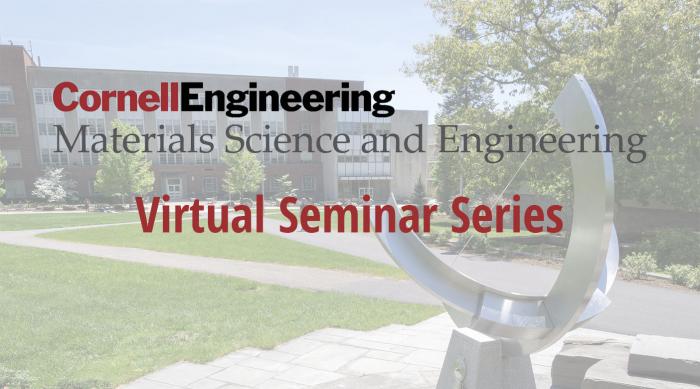
MSE Virtual Seminar Series: Jingjie Yeo, Cornell
Description
Towards Multiscale Computational Design of Bio-inspired Smart Materials
Jingjie Yeo, Cornell University

The rapid aging of the global human population is leading to a startling rise in noncommunicable diseases that are becoming more severe and burdensome for communities who can least afford treatments for these diseases. To dramatically improve the prevention and treatment of noncommunicable diseases, smart biomaterials must be developed at a low cost for drug delivery vehicles with specific targeting mechanisms, environmentally sensitive implants for tissue engineering, or dynamic health monitoring. Multiscale computational design of protein-based biomaterials can address this problem by rationally tailoring the biomaterials’ physical and chemical properties to achieve multifarious stimuli-responses. Three key bio-inspirations can be utilized for designing stimuli-responsive biomaterials: strong and lightweight silk from silkworms, structurally mutable elastin from the human skin, and reflectin and crystallin in squid’s chromatophores that help produce dynamic coloration. Multiscale molecular dynamics simulations, in combination with advanced sampling methods, can effectively and rapidly capture the structural transitions in silk and silk-elastin proteins that are subjected to solvent processing or high temperatures. Crosslinking silk-elastin proteins at high concentrations inhibits de-swelling by constraining their ability to remodel their structure. Homology modeling coupled with molecular docking simulations and the analysis of electrostatic properties unveil the importance of site-specific localization of reflectin and crystallin in the chromatophores of squid’s skin. Crystallin forms granules that serve as protective repositories for the pigment molecules for robust pigmentary coloration while reflectin confers iridescence, and this combination of mechanisms give squids their complex and adaptive coloration. These three bio-inspirations provide crucial design principles to guide the way towards truly rational computational design of multi-stimuli responsive biomaterials.
For Webinar information please contact Kyle Page (kmp265@cornell.edu)

